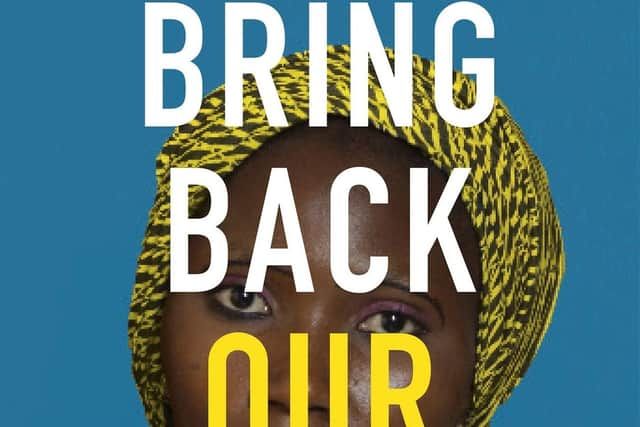Book review: Bring Back Our Girls, by Joe Parkinson and Drew Hinshaw


It is difficult to imagine a more thorough and significant piece of reportage, for our troubled world, than this new book, by Pulitzer-nominated journalists Joe Parkinson and Drew Hinshaw, about the 2014 kidnapping of 276 schoolgirls from the north-east Nigerian town of Chibok by the region’s notorious Islamic militant group Boko Haram, whose very name means “western-style education is an abomination.” Based on research originally carried out for a 10,000 word Wall Street Journal report published in December 2017, Parkinson and Hinshaw’s account of the kidnapping and its long aftermath has now expanded into a book almost ten times that length, published with an impressive apparatus of notes, acknowledgments, glossary and index, and fact-checked to the gold standard of the best American journalism.
The result is an ever more riveting double narrative that both reconstructs the shocking three year ordeal undergone by the girls, and also leads us into the heart of the labyrinthine process by which the release of at least some of them – 21 in September 2016, and a further 92 in May 2017 – came to be negotiated. For the girls, mostly Christians by faith, it was a story of terror, uncertainty, beatings, and sometimes near-starvation, lived out under constant pressure to convert to Islam and “marry” a Boko Haram fighter.
Advertisement
Hide AdAnd on the other side, Parkinson and Hinshaw lead us deftly, and in superb detail, through the bewildering range of forces seeking the girl’s release, from the Hollywood celebrities who joined the May 2014 Twitter campaign known as #BringBackOur Girls, to a Nigerian government riddled with indecision over how to handle the Boko Haram insurgency, major Western governments whose expensive military and intelligence hardware proved almost powerless to find or release the hostages, and a small group of dedicated peace-mongers and intelligence specialists, led by a Swiss government mediator and a Nigerian lawyer, who finally succeeded in arranging the hostage releases.


If the book has weaknesses, they lie in the odd strange lapse of vocabulary, in an occasional podcast-style tendency to repeat factual details as if working for an audience with a very short memory, and in Parkinson and Hinshaw’s central thesis that the high-profile celebrity Twitter campaign that briefly made the Chibok girls world famous may actually have done more harm than good. In truth, the girls’ lives were in such extreme danger throughout – during a savage war that has claimed tens of thousands of lives – that their celebrity status may have both prolonged their imprisonment, and helped to save them.
What matters about this book, though, is not its occasional attempts to apportion blame, but the rigour with which it lays out the facts that enable us to draw our own conclusions, or at least to acknowledge the profound moral complexity of any deals and trade-offs made against a background of war. It is clear, among so much uncertainty, that many of the girls – often led by a remarkable young woman called Naomi Adamu – showed astonishing courage in sticking to their faith and refusing “marriage” against a backdrop of constant death threats, and equally astonishing ingenuity in finding ways to document their experience, and hold on to the reality of their past lives.
Of the 286 who were taken, 61 managed to escape early in the kidnap, and 103 were eventually released. Of the rest, though – killed in rocket attacks on Boko Haram bases, or forced into “marriage” and motherhood under the most perilous war conditions – we can only say that they are not home yet. And that in their troubled country – the most populous in Africa, potentially one of the wealthiest, and critically placed on the continent’s fault line between Christian and Muslim traditions – those who are still living may find the very concept of “home” growing ever more distant, as their years of captivity roll on.
Bring Back Our Girls, by Joe Parkinson and Drew Hinshaw, Swift Press, £18.99
A message from the Editor:
Thank you for reading this article. We're more reliant on your support than ever as the shift in consumer habits brought about by coronavirus impacts our advertisers.
If you haven't already, please consider supporting our trusted, fact-checked journalism by taking out a digital subscription at https://www.scotsman.com/subscriptions